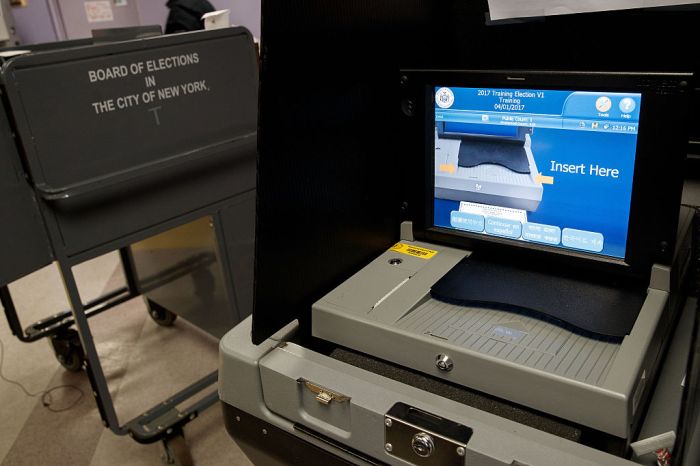In the first 30 days of the new Congressional session, Democrats plan to address campaign-finance reform, prescription drug prices and infrastructure if they take back the House in next week’s midterm elections, party leaders say.
In an interview with the New York Times, House minority leader Nancy Pelosi (D-CA) and her deputy Steny Hoyer (D-MD), say the party has prepared a package of a dozen bills to take up immediately. They are prepared to work on a bipartisan basis but are willing to pass legislation on party-line votes if necessary.
Their strategy is to combat President Trump’s vilification of Democrats as an “angry mob” and show they have a plan to govern. “After eight years in the minority, most Democrats believe they will need to do more than embarrass the White House with subpoenas and investigative hearings if they want to be more than a one-term majority and reclaim the presidency in 2020,” the Times says.
Democrats need to gain 23 seats in the midterms to take control of the chamber. Polls indicate they are likely to get them, but many races are razor-thin. The Real Clear Politics average of polls show Democrats could pick up as few as 9 or as many as 41 seats. If Democratic turnout is low, Republicans could maintain their power.
Nevertheless, the party has gotten started. A top priority is campaign and election reform. Proposed legislation would require campaigns to reveal secret big donors, restore key provisions to the Voting Rights Act and outlaw the gerrymandering of political districts by requiring independent panels to draw districts. Pelosi and Hoyer say they would work to shore up the Affordable Care Act, instead of diving into a push for Medicare for All, and would support broad bipartisan initiatives, including infrastructure and controlling prescription drug prices. President Trump favors both.
According to the Times, Pelosi and Hoyer said they would also push through more progressive policies that have been stymied by a Republican-controlled House: Gun safety legislation, a path to citizenship for young undocumented immigrants known as the Dreamers, and the Equality Act, which would extend current civil-rights protections to include sexual orientation and gender identity.
But Trump may decide not to cooperate, even on legislation he previously advocated. He did that before on a deal for the Dreamers. Senate Majority Leader Mitch McConnell might not bring the bills to the floor of that chamber.
“We’re still going to have Donald Trump as president, so obviously that’s going to limit to an extent what we can accomplish in the short term,” said Rep. Jim McGovern (D-MA) in the Times. “But one thing we can accomplish is we can run the place like professionals and restore some integrity to the institution.”

























